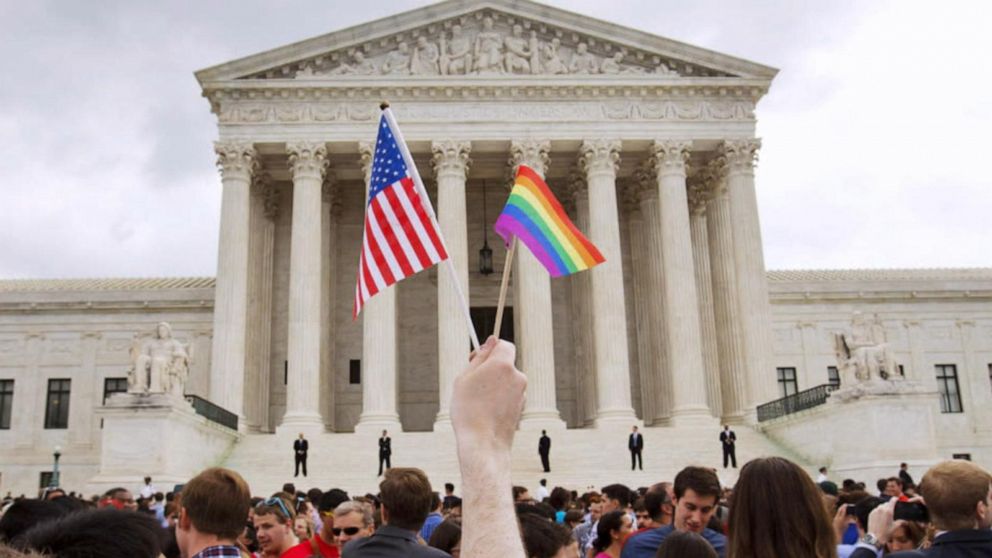#SupremeCourt #LGBTQ #GayRights #FosterCare
By Adam Liptak
WASHINGTON — The Supreme Court on Monday agreed to decide whether Philadelphia may exclude a Catholic agency that does not work with same-sex couples from the city’s foster-care system.
The city stopped placements with the agency, Catholic Social Services, after a 2018 article in The Philadelphia Inquirer described its policy against placing children with same-sex couples. The agency and several foster parents sued the city, saying the decision violated their First Amendment rights to religious freedom and free speech.
A unanimous three-judge panel of the United States Court of Appeals for the Third Circuit, in Philadelphia, ruled against the agency. The city was entitled to require compliance with its nondiscrimination policies, the count said.
Leslie Cooper, a lawyer with the American Civil Liberties Union, said the Supreme Court’s decision in the case would affect many families.
“This case could have profound consequences for the more than 400,000 children in foster care across the country,” she said. “We already have a severe shortage of foster families willing and able to open their hearts and homes to these children. Allowing foster care agencies to exclude qualified families based on religious requirements that have nothing to do with the ability to care for a child such as their sexual orientation or faith would make it even worse.”
In a Supreme Court brief, the agency agreed that the legal questions before the justices were enormously consequential.
“Here and in cities across the country, religious foster and adoption agencies have repeatedly been forced to close their doors, and many more are under threat,” the brief said. “These questions are unavoidable, they raise issues of great consequence for children and families nationwide, and the problem will only continue to grow until these questions are resolved by this court.”
The case, Fulton v. City of Philadelphia, No. 19-123, is the latest clash between anti-discrimination principles and claims of conscience. It is broadly similar to that of a Colorado baker who refused to create a wedding cake for a same-sex couple.
In 2018, the Supreme Court refused to decide the central issue in that case: whether businesses may claim exemptions from anti-discrimination laws on religious grounds. It ruled instead that the baker had been mistreated by members of the state’s civil rights commission who had expressed hostility toward religion.
The foster care agency relied on the decision, Masterpiece Cakeshop v. Colorado Civil Rights Commission, in arguing that it too had been subjected to hostility based on anti-religious prejudice. It added that its free-speech rights would be violated were it forced to certify that same-sex couples are fit to be foster parents.
The city responded that the agency was not entitled to rewrite government contracts to eliminate anti-discrimination clauses.
“It has never been the case that religious entities, or entities with deeply held secular views, are constitutionally entitled to enter into government contracts and then defy any terms to which they object,” the city’s brief said. If the agency’s “sweeping constitutional claims were accepted,” the brief said, “they would cause mayhem in government contracting.”
The agency asked the court to use the case to reconsider an important precedent limiting First Amendment protections for religious practices. The precedent, Employment Division v. Smith in 1990, ruled that neutral laws of general applicability could not be challenged on the ground that they violated the First Amendment’s protection of the free exercise of religion.
The decision, arising from a case involving the use of peyote in Native American religious ceremonies, is unpopular among conservative Christians, who say it does not offer adequate protection to religion, and with some justices. Last year, the court’s four most conservative members — Justices Kavanaugh, Clarence Thomas, Samuel A. Alito Jr. and Neil M. Gorsuch — signaled that they were open to reconsidering the decision.
The court is likely to hear arguments in the case in the fall, after its next term starts in October.
In a second case concerning religion, the court turned down a request that it decide whether Walgreens was entitled to fire a worker who refused to attend a training session on his Sabbath.
Justice Samuel A. Alito Jr., joined by Justices Clarence Thomas and Neil M. Gorsuch, issued a concurring opinion saying the court should in a future case consider how flexible employers must be in accommodating their workers’ religious practices.
Title VII of the Civil Rights Act of 1964 requires employers to “reasonably accommodate” employees’ religious practice so long as they can do so “without undue hardship” on the company’s business. In 1977, in Trans World Airlines v. Hardison, the Supreme Court defined “undue hardship” expansively, ruling that it included any accommodation that imposed more than a “de minimis cost” on the employer.
Justice Alito wrote that the 1977 decision had employed questionable reasoning. “We should grant review in an appropriate case,” he wrote, “to consider whether Hardison’s interpretation should be overruled.”
The new case, Patterson v. Walgreen Co., No. 18-349, was brought by Darrell Patterson, a Seventh-day Adventist whose faith required him not to work on Saturdays. Walgreens generally accommodated him but fired him for refusing a Saturday shift during what the company contended was an emergency.
The United States Court of Appeals for the 11th Circuit, in Atlanta, ruled for Walgreens under the 1977 decision, saying the company had done all the law required it to do.
“The undisputed facts show,” a unanimous three-judge panel of the court wrote in an unsigned decision, “that Walgreens offered Patterson reasonable accommodations that he either failed to take advantage of or refused to consider, and that the accommodation he insisted on would have posed an undue hardship to Walgreens.”


Comments
Post a Comment